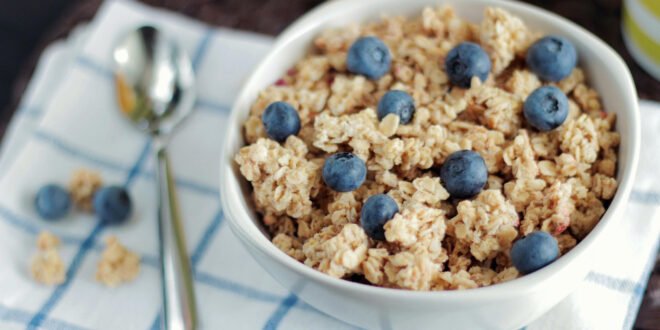Heart-Healthy Breakfast Choices for Better Cardiovascular Health
Maintaining a healthy diet is essential for individuals with cardiovascular disease, as it plays a significant role in managing cholesterol levels, blood pressure, and overall heart health. Certain foods are particularly beneficial due to their high content of fiber, vitamins, and healthy fats. These include oats, whole grain bread, unsweetened plant-based milk, and fresh fruits, all of which contribute to better heart function and reduced risk of complications.
Dr. Nguyen Anh Duy Tung from Nutrihome Nutrition Center emphasizes the importance of choosing breakfast options that are low in LDL (bad cholesterol), sodium, and saturated fats. A well-balanced morning meal can help stabilize blood sugar and blood pressure, ultimately reducing the likelihood of heart-related issues during the day.
Here are five heart-friendly breakfast options recommended by Dr. Tung:
1. Whole Oats
Oats are an excellent source of beta-glucan, a type of soluble fiber that aids in reducing cholesterol absorption in the intestines and lowering blood lipid levels. They also support blood sugar regulation and promote a feeling of fullness. To make a heart-healthy breakfast, cook oats with water or unsweetened plant-based milk and top them with chia seeds or fresh fruits for added nutritional value.
2. Whole Grain Bread
Whole grain bread is rich in fiber, B vitamins, magnesium, and potassium. These nutrients support blood pressure regulation, help relax blood vessels, and protect vascular health. With a lower glycemic index compared to white bread, it reduces metabolic strain on the heart and limits fat buildup in arteries.
3. Unsweetened Plant-Based Milk
Plant-based milks such as almond, soy, or walnut milk offer unsaturated fats that are beneficial for the heart. These beverages are also packed with vitamin E, phytosterols, and antioxidants that help reduce inflammation and improve blood vessel function. It’s best to choose unsweetened and additive-free varieties to avoid spikes in blood sugar and cholesterol levels.
4. Boiled Eggs
Boiled eggs are a good source of high-quality protein that helps maintain muscle mass without causing insulin spikes in the morning. They also contain lecithin, which supports fat metabolism. However, individuals with lipid disorders should limit their intake to three to four eggs per week and avoid fried or butter-enriched preparations.
5. Fresh Fruits
Fruits like apples, bananas, kiwis, and blueberries provide fiber, potassium, and polyphenol antioxidants that help lower blood pressure, combat oxidative stress, and improve overall heart function. Eating whole fruits is preferable to drinking fruit juice, as it preserves natural fiber and helps prevent blood sugar spikes.
Dr. Tung advises cardiac patients to avoid oil-rich, sugar-high, and processed breakfast items such as fried sticky rice, meat-filled sandwiches, instant noodles, and pastries. Instead, they should focus on lighter meals that are low in sodium and rich in fiber and healthy fats to support stable blood pressure and cholesterol levels.
In addition to dietary choices, he highlights the importance of regular health checkups, adherence to prescribed medications, maintaining a healthy weight, and avoiding alcohol and tobacco. For further support, he recommends natural supplements like GDL-5—an extract from South American sugarcane wax—which may help lower blood lipid levels, reduce total cholesterol, and decrease the risk of atherosclerosis.
 Info Malang Raya Its All About World News
Info Malang Raya Its All About World News




